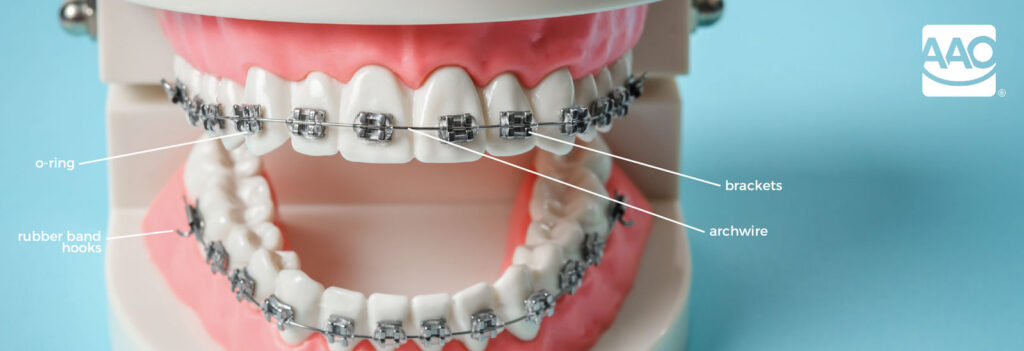Please call our office for assistance to schedule an emergency appointment.
You can also contact us by email at the link below. Forms are reviewed during working business hours.
Orthodontic Emergencies & How to Prevent Them
If you’re undergoing or have undergone orthodontic treatment, you know that it takes some time to get used to braces or a retainer. Most patients are likely to experience soreness and minor aches, especially as the teeth begin to move and shift into an ideal alignment. The good news is that orthodontic emergencies are generally rare and minor, but it never hurts to know what to do in the event that you’re left dealing with an orthodontic emergency. Here are fixes you’ll want to know about, just in case!
Major Orthodontic Emergencies
Did you know that almost 50% of children suffer from some sort of dental injury? Most tooth and mouth injuries are caused by a sports injury, fall, or some other type of accident. While children are more likely to suffer from a dental emergency, adults are also at risk. Some of the most common dental and mouth injuries include:
- Broken tooth
- Broken jaw
- Dislodged or misplaced tooth
- Root fracture
If you experience a major dental, jaw, or mouth injury, it’s critical to seek medical assistance immediately. A serious dental emergency could cause severe pain and tooth loss. In dealing with this type of emergency, chances are your orthodontic treatment will be impacted. If you’ve lost a tooth or broken a jaw, your teeth will inevitably shift out of place. It’s important to also schedule an appointment with a local orthodontist who can determine if your orthodontic appliance needs to be adjusted or replaced.
Minor Orthodontic Emergencies
While major orthodontic emergencies do happen, you’re more likely to deal with minor issues with your orthodontic appliance. Here are minor (and common!) issues that you may face, as well as what you can do to remedy the problem.
Excerpt from AAO PDF – DOWNLOAD

HANDLING ORTHODONTIC ISSUES AT HOME:
While there are steps you can take to temporarily fix or alleviate discomfort and prevent additional damage, your orthodontist should always be notified. Contact them if you have any concerns during this time. Many times, they may be able to handle the issue over the phone or virtually through video communication.
Tools + supplies:
- Orthodontic relief wax
- Dental floss
- Disinfected tweezers
- Q-tips
- Salt
- Interproximal brush
- Toothpicks
- Non-prescription pain reliever (acetaminophen or ibuprofen)
- Topical Anesthetic (Orabase or Ora-Gel)
Lost o-ring
An o-ring is the tiny rubber band or sometimes a very thin wire (ligature), that holds the orthodontic wire in the bracket/brace. If a rubber ligature should come off, you may be able to put it back in place using disinfected tweezers. If a wire ligature comes loose, simply remove it with the tweezers. If the wire ligature is sticking out into the lip but is not loose, it may be bent back down with a Q-tip or pencil eraser to eliminate the irritation. Should this happen, be sure to notify your orthodontist and come up with a plan for repair. Note: self-ligating brackets don’t use o-rings.
Protruding wire
Occasionally, the end of a wire will work itself out of place and can irritate the mouth. Use a Q-tip or clean tweezers and try to push the wire so that it is flat against the tooth. If the wire cannot be moved into a comfortable position, cover it with relief wax. Should changes with your wires occur during this time be sure to contact your orthodontist to make them aware of the issue.
Irritation in mouth
Sometimes braces or wires can be irritating to the mouth, especially when eating. A small amount of orthodontic relief wax makes an excellent buffer between metal and mouth. Simply pinch off a small piece and roll it into a ball the size of a small pea. Flatten the ball and place it completely over the area of the braces causing irritation. Wax can be purchased at any drug store if you are unable to get some from your orthodontist during this time.
Discomfort
It’s normal to have some discomfort during orthodontic treatment as your teeth move, however it should not last longer than a couple of days. Rinsing your mouth with warm saltwater and taking over-the-counter pain relievers, such as acetaminophen or ibuprofen, may alleviate some discomfort. If the discomfort lasts longer than a couple of days be sure to call your orthodontist to discuss.
Mouth sores
Some patients are susceptible to episodes of mouth sores. While braces do not cause them, they may be precipitated or exacerbated by an irritation from braces. One or several areas of ulceration of the cheeks, lips, or tongue may appear. This is not an emergency but may be very uncomfortable. Prompt relief may be achieved by applying a small amount of topical anesthetic (such as Orabase or Ora-Gel) directly to the ulcerated surface using a cotton swab – reapply as needed. If after a couple of days the discomfort does not resolve, call your orthodontist to discuss.
Loose braces or bands
If the braces or bands have come loose in any way, call your orthodontist to determine appropriate next steps.




